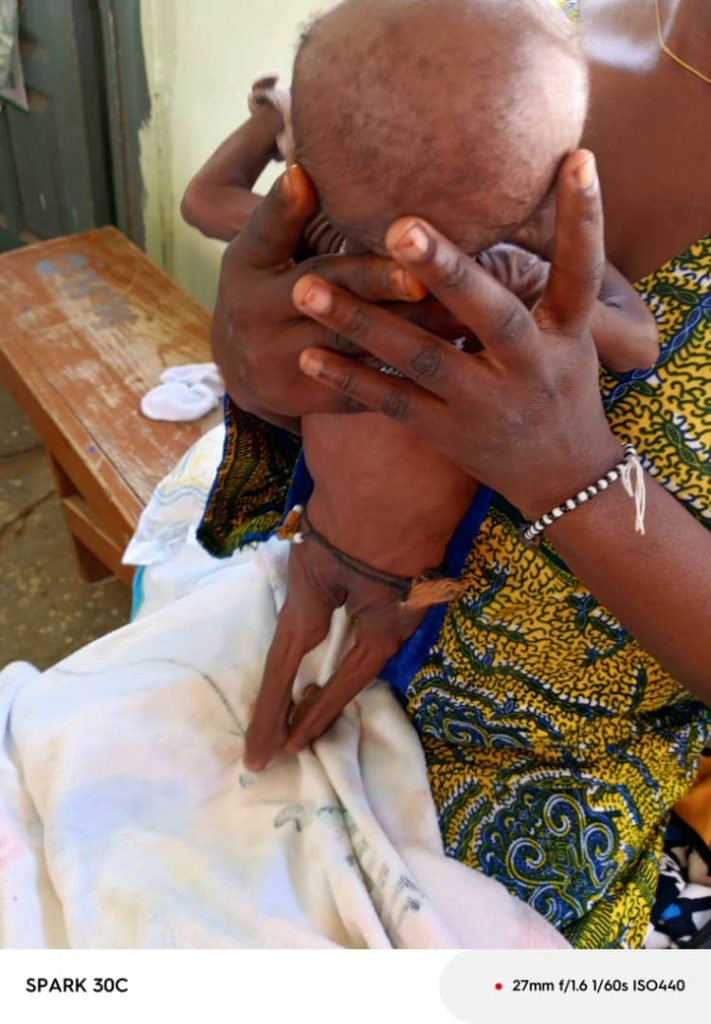The Bawku Municipality in Ghana is grappling with a severe malnutrition crisis, tragically claiming the lives of at least two children and afflicting 65 others. This alarming situation is directly linked to the ongoing conflict that has disrupted the region’s economic and social fabric. Bawku, traditionally a vibrant commercial hub, has witnessed a sharp decline in trading activities over the past three years. This economic downturn has severely impacted families’ ability to access adequate food and nutrition, leading to a surge in malnutrition cases, particularly among vulnerable children. The crisis is further compounded by reports of anaemia among pregnant women, highlighting the widespread nutritional deficiencies plaguing the community.
The escalating conflict in Bawku has created a cascade of negative consequences contributing to the malnutrition crisis. The disruption of trade and economic activities has drastically reduced household incomes, limiting families’ purchasing power for essential food items. The conflict has also restricted movement and access to healthcare facilities, hindering timely diagnosis and treatment of malnutrition cases. Furthermore, the prevailing insecurity and fear have disrupted agricultural activities, impacting food production and availability within the municipality. The cumulative effect of these factors has created a vicious cycle of poverty, food insecurity, and malnutrition, pushing vulnerable populations, particularly children and pregnant women, into a dire situation.
Health officials in the Bawku Municipality have reported a significant increase in malnutrition cases in 2023, with 297 cases recorded, a stark indicator of the worsening situation. Bathomio Asigri, the Bawku Municipal Health Nutrition Officer, attributes the surge in malnutrition cases directly to the ongoing conflict. He highlights the significant decline in trading activities, which has severely impacted families’ financial stability and their ability to afford nutritious food. Surveys conducted in the area have revealed a concerning decrease in the number of meals people consume daily, further confirming the link between the conflict, food insecurity, and the rising malnutrition rates.
The malnutrition crisis in Bawku underscores the devastating impact of conflict on human well-being, particularly on the health and nutrition of vulnerable populations. Malnutrition, a condition arising from an imbalance between the body’s nutrient requirements and its intake, can manifest as undernutrition or overnutrition. In Bawku, the prevalent form is undernutrition, characterized by a deficiency in essential nutrients like calories, proteins, vitamins, and minerals. This deficiency weakens the immune system, increases susceptibility to infections, and impairs physical and cognitive development, especially in children. The long-term consequences of childhood malnutrition can be severe, leading to stunted growth, developmental delays, and chronic health problems.
Addressing the malnutrition crisis in Bawku requires a multi-pronged approach that tackles both the immediate needs and the underlying causes. Immediate interventions should focus on providing emergency food assistance and nutritional supplements to affected families, particularly children and pregnant women. Strengthening healthcare services, including access to screening and treatment for malnutrition, is crucial. Simultaneously, efforts must be made to address the root causes of the crisis, primarily the ongoing conflict. Promoting peace and stability in the region is essential for restoring economic activities, improving food security, and ensuring long-term solutions to the malnutrition problem.
In the long term, sustainable solutions lie in strengthening the resilience of communities to withstand future shocks and crises. This includes promoting diversified livelihoods, improving agricultural practices, and enhancing access to education and healthcare. Empowering communities to take ownership of their food security and nutrition is crucial for building a sustainable and resilient future. The situation in Bawku serves as a stark reminder of the interconnectedness of conflict, poverty, and health, highlighting the urgent need for comprehensive and collaborative efforts to address these complex challenges and safeguard the well-being of vulnerable populations.














